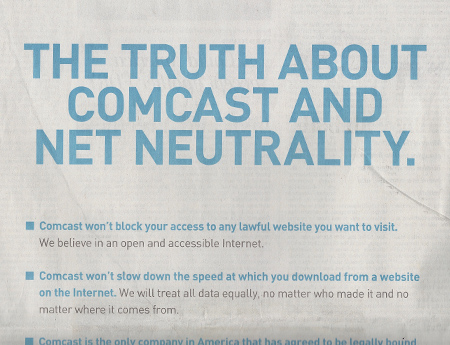FCC Hears Plenty From Comcast/TWC Opponents

The smarter way to stay on top of broadcasting and cable industry. Sign up below
You are now subscribed
Your newsletter sign-up was successful
If you hope to win any game of tug of war, it’s prudent to be able to size up the folks on the other side of the rope. Comcast—the country’s largest cable operator— already knew there would be plenty of opposition to its proposed buy of No. 2 operator Time Warner Cable, and what the deal could mean for traditional and online video distribution. Now that the proposal is officially on the FCC record, however, Comcast can better view the opposition. It can also point to many supporters with strong hands on its side, weighing in on the record.
Dish Network, Netflix, Free Press, the Consumer Federation of America, the Writer Guild of America West, the Future of Music Coalition and WeatherNation TV were among those officially petitioning the FCC to block the deal.
And if the commission doesn’t block the deal, those companies all want plenty of conditions. Among the asks: Guaranteed protection of spot cable, mandatory à la carte, and favorable retrans conditions, to name but a few.
The deadline for asking the FCC to deny the deal passed on Aug. 25. Comcast pointed to over 200 groups and officials who weighed in with support. But its critics filed numerous requests to deny the deal—notably a group of 60 or so consolidation opponents that included Common Cause and Consumers Union. They cited everything from Comcast/TWC’s size, to its must-have sports programming, to its control of the weather (let’s call that a somewhat inflated reference to its ownership percentage of the Weather Channel).
Comcast has until Sept. 23 to reply, but executive VP David Cohen has already weighed in with a lengthy blog post responding to the critics, including saying that some of the programmers critical of the deal are ones who failed to renegotiate better terms in exchange for their support.
Here are some highlights from the massive data drop at the FCC last week.
Foes and Critics of the Deal
The smarter way to stay on top of broadcasting and cable industry. Sign up below
The Sports Fans Coalition wants the FCC to take no action on Comcast/TWC until Time Warner Cable’s impasse with California multichannel video programming distributors over the Dodgers regional sports network (RSN) is resolved, and then either deny the merger or condition it on the spin-off of all of Comcast’s RSNs.
WeatherNation TV wants the deal blocked because it says the company could foreclose competition in the meteorological programming space—Comcast has a 25% interest in Weather Channel.
The Parents Television Council joined with various “decency” and “morality” groups to request that the FCC block the deal unless the new company agreed to unbundle its programming.
Sinclair Broadcasting said the FCC must either put conditions on the Comcast/Time Warner Cable merger—including retrans conditions— to deregulate broadcasters, or deny what would create a combination that it said could drive TV stations out of business.
Fans of the Deal
Urban League of Springfield. Mass., whose president Henry Thomas praised Comcast’s Essentials low-income broadband program and urged the FCC to approve the deal.
Democratic Municipal Officials, a national association of elected mayors also weighed in with a yes. Even though Comcast’s Cohen has said he does not think municipal broadband is the best way to bridge the digital divide, the association offered support: “This transaction stands to produce new investment in infrastructure that will enhance video and Internet service in our communities,” said DMO president Cindy Lerner.
TiVo cites Comcast’s history of working with it on retail set-top innovation as a reason it is supporting the deal. “TiVo believes that approval of the above-referenced transaction should benefit consumers that wish to use retail devices to access their pay-TV programming,” it said.
Fence-Sitters
The National Association of Broadcasters, in a pitched battle with cable operators over retrans—but counting Comcast’s NBC among its members—steered a middle course. It did not comment on the substance of the deal, but signaled that Comcast was currently in discussions with some broadcast groups over their concerns.
The New York Public Service Commission is conducting its own review, and said it was not ready to weigh in on one side or the other. But it also said it thought Comcast and Time Warner Cable were low-balling the potential for both horizontal and vertical harms and suggested the FCC would need to apply some conditions if it approved the deal.
Contributing editor John Eggerton has been an editor and/or writer on media regulation, legislation and policy for over four decades, including covering the FCC, FTC, Congress, the major media trade associations, and the federal courts. In addition to Multichannel News and Broadcasting + Cable, his work has appeared in Radio World, TV Technology, TV Fax, This Week in Consumer Electronics, Variety and the Encyclopedia Britannica.

